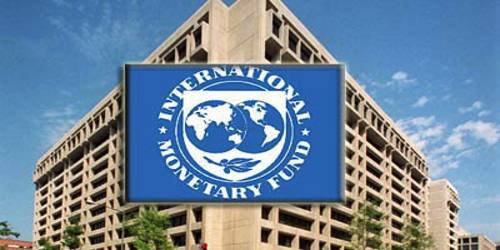The International Monetary Fund (IMF) in its 2020 outlook downgraded its growth forecast for the Nigerian economy to two per cent as against its initial projected growth of 2.5 per cent. The bleak forecast, contained in its Article IV Consultation to Nigeria, came on the heels of plunging oil price in the international market fueled by the outbreak of the deadly coronavirus in China. The IMF team of economists that visited Nigeria to assess the economic and financial policies described the outlook as very challenging and additional shock to the economy.
According to Amine Mari, the Fund’s Senior Resident Representative, and Mission Chief for Nigeria, the pace of economic recovery remains abysmally slow, as declining real incomes and weak investment continue to weigh on economic activity. He further explained that in Nigeria, the Fund’s team of economists found that “external vulnerabilities are increasing, reflecting a higher account deficit and declining reserves that remain highly vulnerable to capital flow reversal.”
Besides, Nigeria’s external reserves have fallen to N37.23billion as at February 13, 2020, while the inflation rate has risen to 12.13 per cent for the month of January.
In order to contain its vulnerabilities, the IMF advised the Federal Government to initiate major policy adjustments necessary to build resilience and unlock growth potential. It also warned the government to henceforth refrain from resorting to extra-budgetary spending through the resort to overdraft or intervention by the Central Bank of Nigeria (CBN).
The IMF was perhaps alluding to the increased dollar sales by the CBN to defend the naira in the face of high dollar demand by foreign portfolio investors exiting Nigeria’s fixed income market. This may possibly explain the steady decline in external reserves. We agree that the CBN may be overusing the overdraft tool, even though we support the apex bank’s restriction on foreign exchange for select goods on which Nigeria hopes to promote local production. However, pragmatism demands that every country should, of necessity, have a prerogative to save local producers. The idea of open market by every means seems outdated.
No doubt, some of the observations of the IMF on Nigerian economy are valid. The bleak forecast should be seen as a wake-up call to revamp the economy. The reality is that our economic growth is painfully slow, an observation that has also been made by the Economic Advisory Council, led by Prof. Doyin Salami. As the IMF noted, the economy is still much dependent on oil, and therefore, vulnerable to external shocks whenever oil prices plummet or driven by unforeseen circumstances such as the current coronavirus outbreak. We enjoin the government to put more effort in its diversification drive and address other factors that undermine economic recovery. We say this because the nation cannot afford another economic recession.
We urge both the fiscal and monetary authorities to evaluate the recommendations of the IMF and use them to revive the economy. This is not the time to play the ostrich or ignore the IMF’s call for reforms. We believe that non-oil revenue mobilisation is paramount to overcoming the financial constraints and ensuring that the interest payments to revenue ratio are sustainable. Besides, further tightening of monetary policy is needed to contain domestic and external pressures arising largely from CBN maturing bills. The fear of further spike in inflation is real and could lead to negative consequences for businesses and consumers.
Though efforts have been made in recent years to reduce the legacy of non-performing loans in the banking industry, much more should be done to address the vulnerability in the sector. This can be done through the introduction of risk-based minimum capital requirements that will help strengthen banks resilience. The CBN should heed the call to revisit the minimum lending to the deposit revenue directive which it reviewed last year to improve lending to the real sector of the economy.
The Federal Government should review the border closure and do the needful. According to IMF, the border closure will continue to have significant economic consequences on Nigeria’s neighbours. There is no doubt that the economy requires structural reforms in critical sectors such as power, infrastructure development in roads and rails, closing gender gaps, education and health, all of which are essential to boosting inclusive growth. Although the government has taken some measures to revamp the economy, we urge it to do more to accelerate economic growth beyond the IMF’s 2 per cent forecast for 2020.

